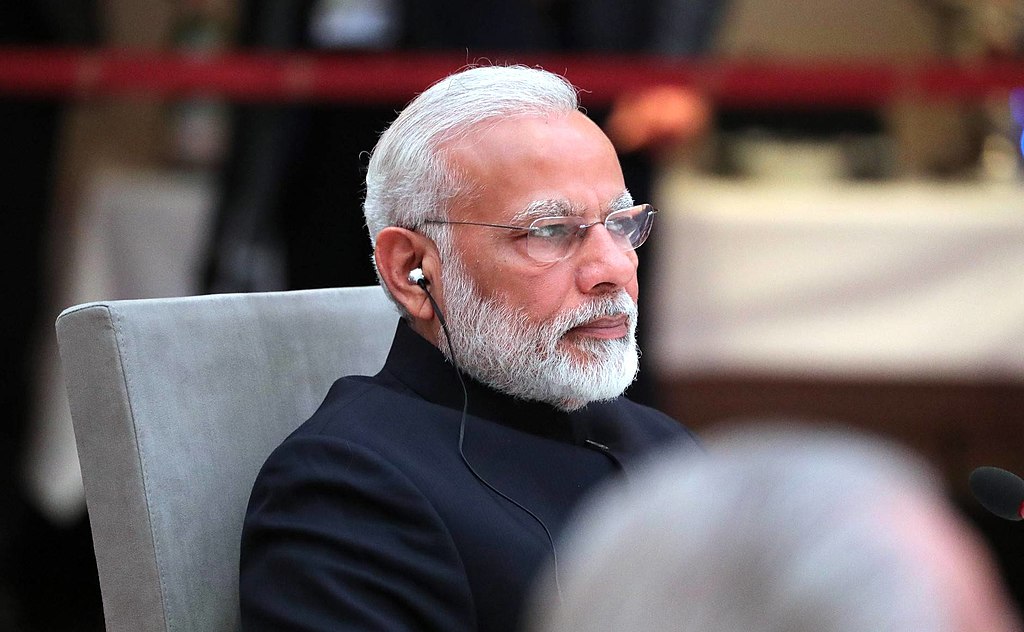Overview:
The Global Affairs team share some of the most important weekly headlines that you may otherwise have missed.
A note from the editor
In Poland, frustration against the import of Ukrainian agricultures ignited protest two years on from the war.
In the UK, the Scottish National Party set in a controversial motion to parliament calling for a truce in Gaza. The motion, which was purposefully made to divide the labor party, caused commotion to the parliament, despite not bringing much change to UK’s policy on Gaza.
A Tory MP has been under fire for expressing Islamophobic comments, an offense he has committed multiple times in the past.
In India, prime minister Narendra Modi has gone through a tour of the Middle East to challenge China’s growing presence in the region.
As Hilary term comes to an end, we will need to get out from the bubble of Oxford and face the everyday changes of the outside world, and we hope this week’s Outside OX1 helps to explain some of these changes!
Poland-Ukraine relations strain over farmer’s protests two year on from the start of the war
Nick Marshall

Polish farmers returned to streets across the country on Tuesday to protest price pressures, taxes, and import of Ukrainian agricultural products. Videos emerged at the Medyka border crossing where trucks of Ukrainian grain were spilt on the road, and worrying pro-Russian remarks were made by some protesters elsewhere. The Polish Foreign Ministry expressed concerns that some elements of the ongoing protests may “possibly [be] influenced by Russian agents” after a tractor in Silesia flew a Soviet flag and a banner reading “Putin – Put Ukraine, Brussels and our rulers in order,” sparking public outrage.
To avoid further escalations, Polish Prime Minister Donald Tusk has attempted to reconcile both Ukrainians and farmers, reiterating his support for Ukraine, and expressing an understanding of the farmers’ concerns. In his remarks, Tusk stated that he can “ensure a 100% guarantee that military aid … reaches the Ukrainian side without delays,” and that Poland would enable safe border crossings with Ukraine to allow for this continuation of support.
Tusk has agreed to a meeting with the Ukrainian government in Warsaw on March 28 but has refused urgent talks with Ukrainian President Volodymyr Zelenskyy over the border blockades by Polish farmers. Tusk’s chief-of-staff Jan Grabiec has stated that a delegation will not be imminently sent as it “makes no sense at this moment.”
Both the Polish and Ukrainian economies have strong agricultural and transport sectors, but the war in Ukraine has meant that the EU is allowing Ukraine tariff-free access to its markets. This has flooded the EU with cheaper Ukrainian imports that are out-competing Polish produce and has led to masses of grain stockpiling in Poland due to a lack of port infrastructure. Much of the grain was, therefore, not exported to third-party countries, and has further reduced the cost of Ukrainian grain in the Polish domestic market, forcing many Polish farmers to make losses.
Tusk has made huge efforts in his attempt to restore the rule of law and democracy in Poland, since the PiS government that ruled Poland from 2015-23 saw a significant erosion in various freedoms, as reported by Human Rights Watch. Following Tusk’s re-entry to the Sejm as Prime Minister in December 2023, he has been met with a difficult and divided Poland. Tusk took the public news channel TVP off air to restore impartiality in December, with his centrist Civic Platform party calling it “TVPiS” and an “outlet for propaganda” on X. This sparked masses of protests over the Christmas period, despite the move being motivated by a violation of the Polish Constitution under PiS, which states that publicly-funded broadcasters should not be politically biased (much like that of the BBC in the UK). The heated internal politics of Poland has only led to more unrest from rural voters, a demographic that largely votes for PiS in Poland’s South and East, and has emboldened right-leaning protesters to take a less sympathetic approach to Ukraine’s cause.
Modi’s tour of the Middle East highlights renewed Indian diplomacy
Patrick Maxwell

Narendra Modi’s tour of the Middle East this month has been hailed as a display of India’s increasingly powerful role in the continent at a time of war. Visiting Qatar and the United Arab Emirates, Modi’s visit comes with a number of economic and political priorities in mind. Not only are there around 3.5 million Indian expatriates in the UAE, outnumbering the Emirati nationals themselves.
The UAE is India’s second-biggest export market, and the Gulf States as a whole are a crucial factor in the ever-growing amount of investment into India’s economy. The sovereign wealth funds of Saudi Arabia and the UAE together are committed to putting $175 billion into the Indian markets over the next few years. Most importantly, however, Mr Modi’s visit heralds a wider transformation in India’s alignment in the region, which is marked by a turn away from Iran and towards Israel and the Gulf States. The motivations are both economic and diplomatic: Modi is intent upon India challenging China’s influence in the region, and sees the possibilities of greater foreign direct investment flows and manufacturing ties as crucial to this strategy. Moreover, the meeting with Sheikh Mohamed included the inauguration of a new Hindu temple; ties between India and the Middle East have cultural and political roots which have not been much discussed in Western circles. Modi and the Indian government he leads seem increasingly intent upon deepening them and staking a claim to a regional powerbase with which neither China nor America has much reckoned.
Gaza vote ends in row, but little is likely to change
Louis Treasure

On Wednesday, the SNP put a motion to Parliament calling for a ceasefire in Gaza. Both the Labour and the Conservatives proposed amendments to the motion; parliamentary convention would dictate that the Government’s proposal be debated, rather than Labour’s. Yet, in a break with tradition, Speaker Sir Lindsay Hoyle allowed a vote on both amendments, causing Tory and SNP MPs to stage a walkout. The amendment then passed unchallenged.
The SNP motion was deliberately worded to cause division in the Labour party. Although Labour came out in support of a ceasefire in Gaza ahead of the vote, deep divisions exist in the party over specific aspects of the issue. The Labour amendment added to the motion that ‘Israel cannot be expected to cease fighting if Hamas continues with violence’, and tempered the descriptions of the issue made by the SNP, who used stronger language to condemn Israel’s actions.
The Speaker’s intervention allowing Labour’s amendment to be debated averted a massive rebellion in the Labour party – Keir Starmer had been told that 100 MPs (just more than half of the party) could have refused to vote against the SNP motion.
Hoyle later apologised, citing security concerns (raised by Starmer in a meeting prior to the vote) as his main reason for the decision.
For those in Westminster, these events are positively exciting. Desmond Swayne, MP for New Forest West, shouted ‘Bring back Bercow’ during Hoyle’s speech – suggesting that the now disgraced former Speaker would be preferable to Hoyle. More than 60 MPs have now signed a motion calling for Hoyle to resign.
Very little will change in Gaza as a result of the vote; UK Government policy remains unchanged. The UN has suspended aid to northern Gaza, citing a ‘collapse of civil order’. The UN had previously warned of regional famines, pointing to northern Gaza as particularly in need of aid; food availability has considerably worsened in the past weeks. The UK dropped aid into Gaza this week. Although good news to those concerned, in the absence of serious and decisive agreements on the issue between Government and Parliament, aid, nor political pressure, will increase.
Lee Anderson: Tory MP suspended over ‘Islamist’ comments
Eric Balonwu
On Friday the 26th, Lee Anderson, a Conservative MP who represents the Red Wall seat of Ashfield went too far. While Anderson is infamous for making controversial remarks, his statement that Sadiq Khan (the Mayor of London) was being controlled by “Islamists” was a step too far for the Conservatives and he has ‘lost the whip’. Losing the whip, means that Anderson will remain a member of Parliament but Anderson will now sit in the Commons as an independent.
His remarks were criticised by both Labour and the Conservatives, as Sadiq Khan stated that the remarks were “Islamophobic, anti-muslim and racist”. Meanwhile, the Conservative chief whip, Simon Hart suspended Anderson after he refused to apologise and Prime Minister Rishi Sunak labelled his comments “wrong” and “unacceptable”.
Anderson has had a history of making controversial statements which have upset many on the political left, but many on the right tolerated. For example, Anderson claimed that food banks were not “massive[ly]” needed since people could make a meal on 30p; or that any asylum seekers who were unhappy about being housed on the Bibby Stockholm “should fu**off back to France”. Initially, Number 10 seemed to be at least content with his comments, as they may have believed that Anderson was helping the Conservatives retain socially conservative voters (especially in the Red Wall).
Anderson was promoted to Deputy Chairman in February 2023, suggesting that the Conservatives were willing to fight the next general election campaign on a culture wars strategy (something Lee Anderson explicitly admitted to). However, it seems that Lee Anderson has gone from Tory asset to a drag on the Tory brand. Anderson resigned last month over disagreements about the Safety of Rwanda Bill – as thought it did not go far enough in guaranteeing that asylum seekers would be processed in Rwanda and voted to amend the legislation. His suspension from the Tory Party suggests that the Conservative Party are both concerned with appearing Islamophobic and may switch away from his style of politics at the next general election.
Write for us!
Interested in writing for the OX1 column, looking for somewhere to turn your article idea into a reality? Then look no further. Both the Global Affairs and Environment Section are looking for new writers and contributors. If you’re interested in student journalism and want to get involved make sure to join the Oxford Blue writers group on Facebook.
Oxford Blue Writers Group:
https://www.facebook.com/groups/2462003647260904/?mibextid=oMANbw
Global Affairs Writers Group:
https://www.facebook.com/groups/441255647575456/?mibextid=oMANbw
